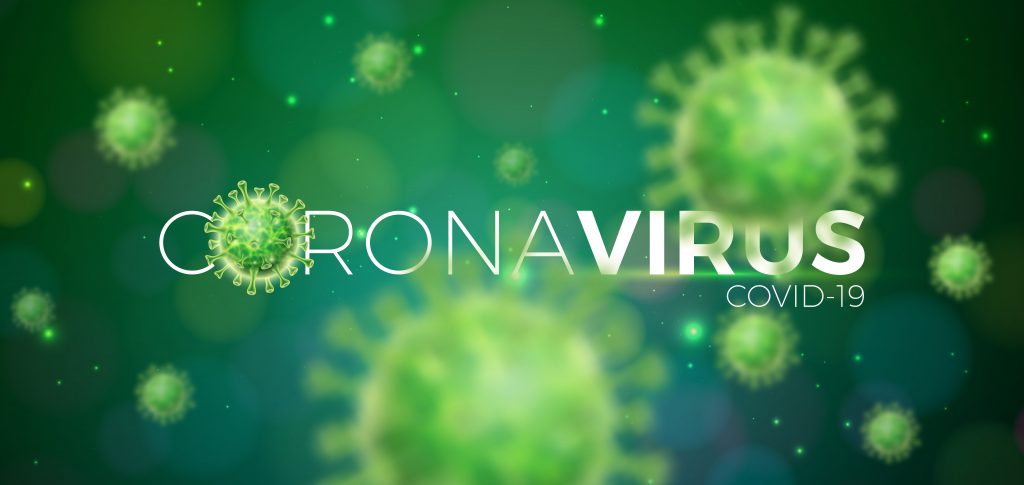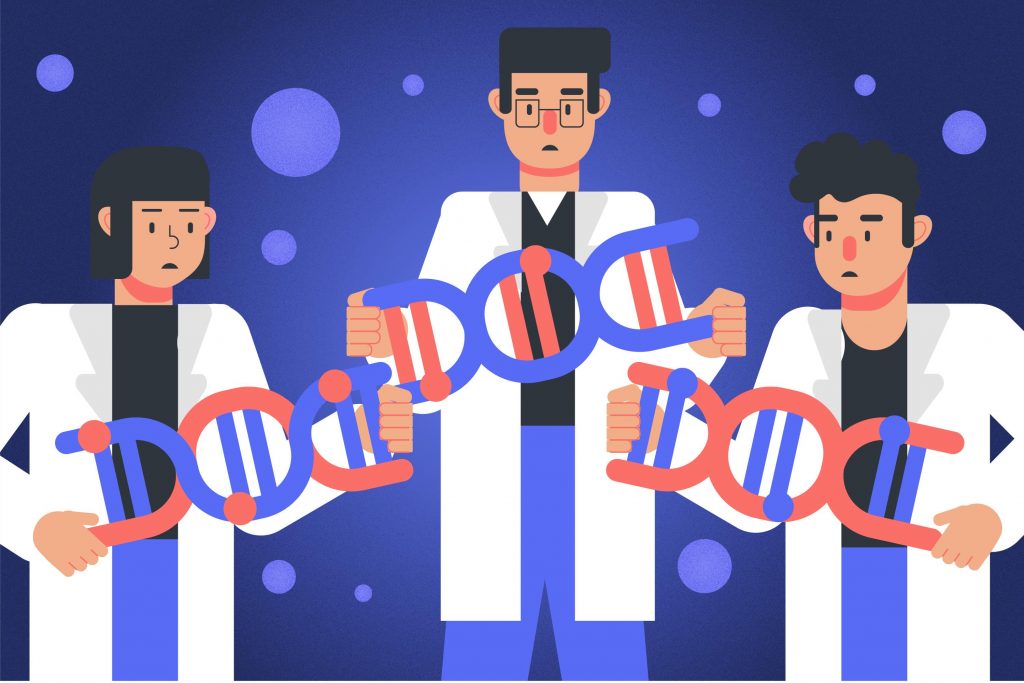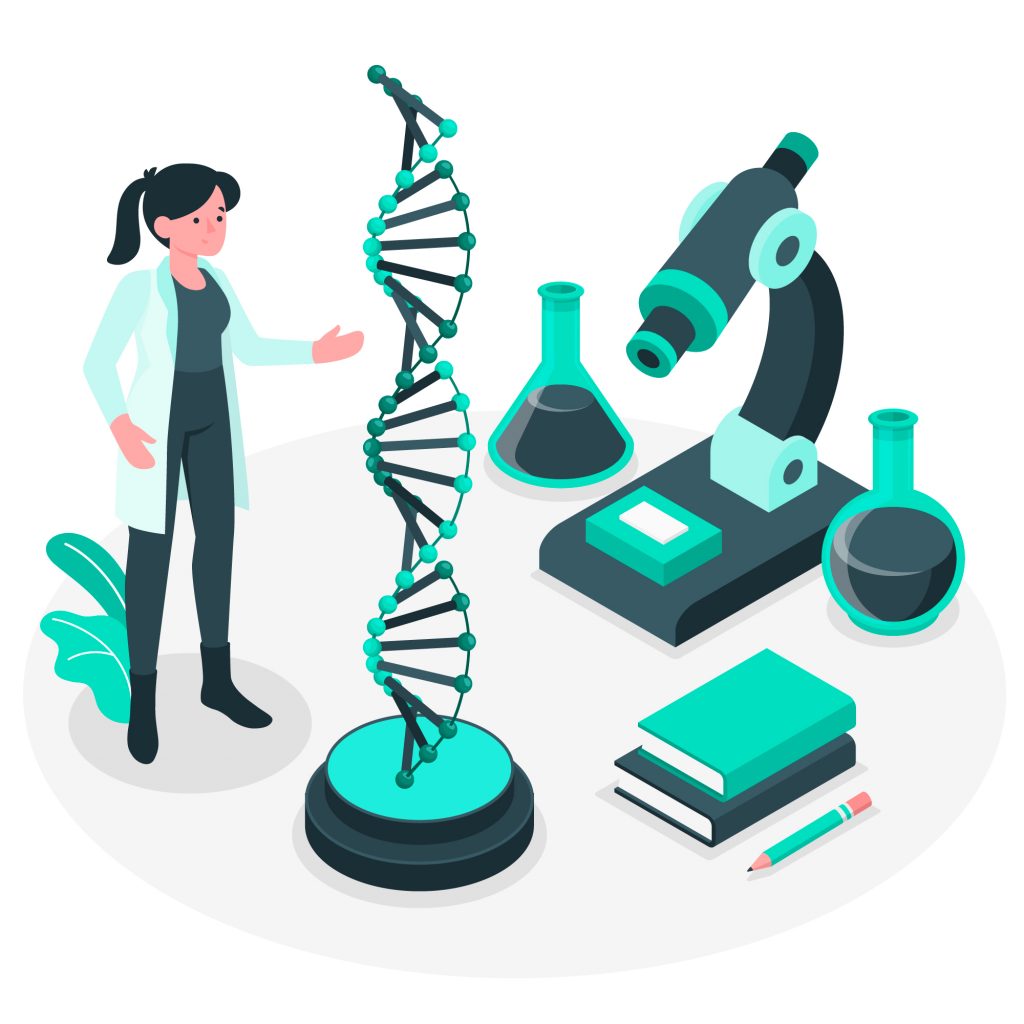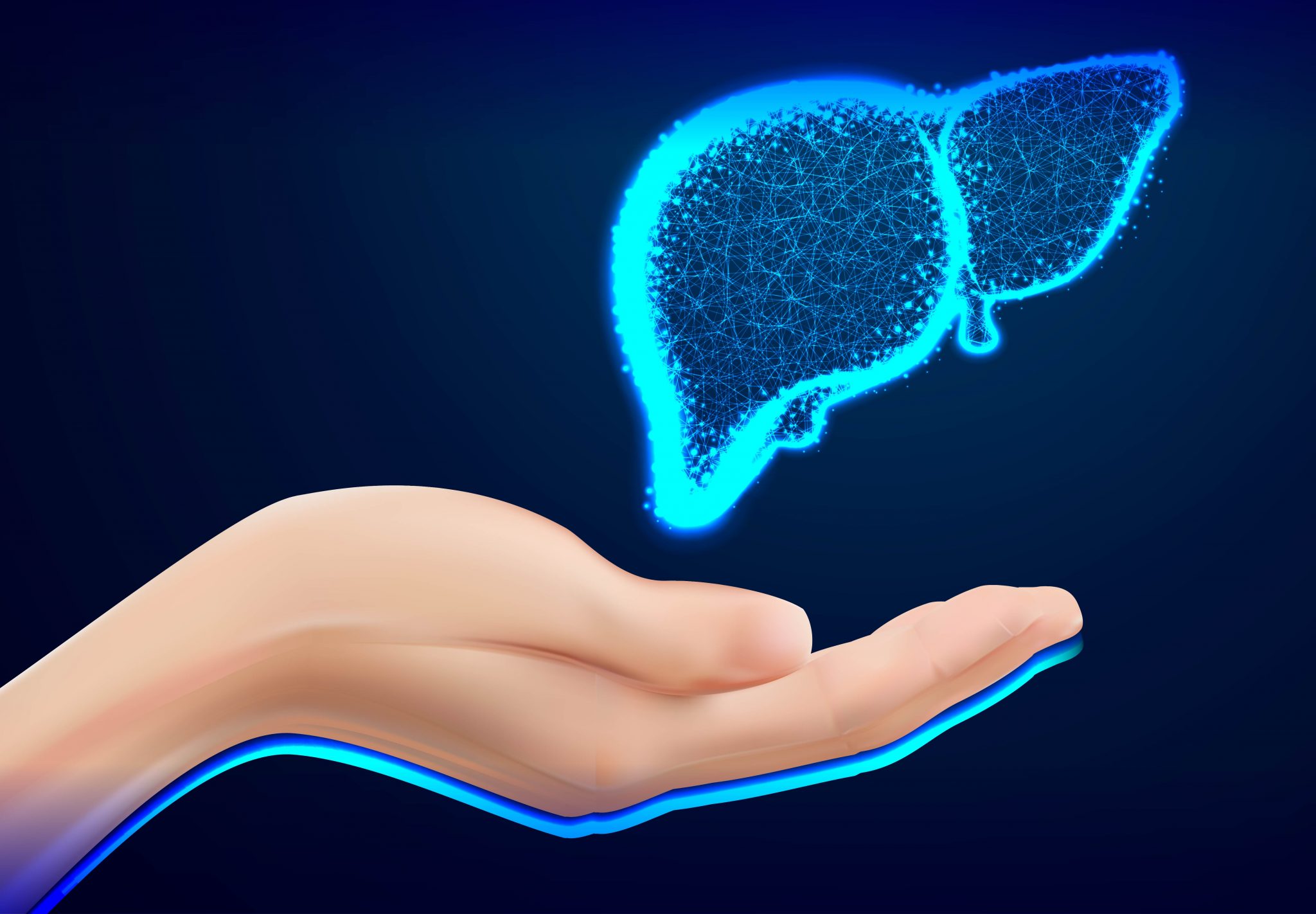
Throughout the pandemic of COVID-19, have you ever noticed that different people experience the pandemic differently? Some show zero symptoms, others just have a mild cold and unfortunately, some become very sick and pass away.
Day by day, scientists are continuing to work hard to figure out the underlying reasons behind this wide variation of symptoms and outcomes.

Besides reasons such as having a weak immune system, high blood pressure, diabetes or obesity, there is one theory for this discrepancies of symptoms – the unique genetic makeup of each individual who catches the disease.
Some people’s genes may simply make them more vulnerable to COVID-19, while others’ may give them more resistance towards contracting the disease.1
Therefore, looking into the genetics of the virus itself and the people who are more defenceless against the disease could be a major help in identifying and protecting those individuals high at risk, speeding up the treatment and developing the vaccine and drug.1

In the measures taken to flatten the curve of this pandemic, genetic technology have been largely utilized.
Type of genetic technologies to combat COVID-19
1. Real-time PCR testing2
If you have the symptoms of a flu or cold, and you want to make sure that you are not indeed infected with COVID-19, you might want to get a diagnostic (confirming) testing for COVID-19.
Real-time PCR is a method that is used to confirm whether you are infected with the virus or not. The information from this test helps clinicians in deciding the following appropriate steps in managing patients who are infected.
2. Sequencing-surveillance based testing3
While diagnostic testing helps clinicians in managing patients, surveillance testing helps the public health officials in finding the best ways to manage the population and control the pandemic. This is because, the test is capable to:
- Track the transmission route of the virus globally
- Determine how quickly the virus is adapting as it spreads
- Identify the targets to therapies
- Understand whether the virus is changing in ways that will impact the effectiveness of the therapies
3. Microarray based research studies
Researchers have been collecting DNA samples and health data from COVID-19 patients and from those who are not infected.4 Microarray technique is used to compare the DNA of people who have serious cases of COVID-19 without any underlying disease (diabetes, heart, lung disease), with those DNA of people with mild cases or no negative cases. In turn, this comparison can bring researchers to the identification of sets of genes that play key roles in the disease development of COVID-19.
This technique is a cost-effective tool to process a large number of samples and efficiently run the genetic analysis in order to accelerate research. One such initiative is done by Finland Institute of Molecular Medicine (FIMM) which has been partnering with more than 50 partners from global biobanks, hospitals and research institutes.4
4. Pharmacogenetics (PGx) using single-cell RNA sequencing
Pharmacogenetic is a study of how people respond to drug therapy differently due to their unique genetic makeup.
In this study, single-cell sequencing is a next-generation sequencing (NGS) method that examines the complete set of genetic materials present in a cell, individually in responses to drug therapy. It provides a higher-resolution view of the differences between cells in comparison to the traditional methods that provide the genetic materials data in bulk.5
A recent study6 stated that there are many drugs that seem fit to be a therapy for COVID-19, however they believe that the COVID-19 drug therapy should be personalized as genetic differences is one of the major factors that explain the differences in drug responses. From this study, they added that it is important to consider racial differences in deciding drug type in COVID-19 treatment.6
This article was contributed by affiliate from ScienceVision Sdn Bhd
Looking for where you can get a COVID-19 screening test? Discover the nearest available hospitals or clinics for walk-in, drive-thru, and on-site COVID-19 screening tests here.
References:
1. Brown, K., & Cortez, M. (2020). Your Risk of Getting Sick From Covid-19 May Lie in Your Genes. Bloomberg. Retrieved 28 April 2020, from https://www.bloomberg.com/news/articles/2020-04-16/your-risk-of-getting-sick-from-covid-19-may-lie-in-your-genes.
2. How Sequencing-Based Surveillance Helps Fight COVID-19. Illumina. (2020). Retrieved 28 April 2020, from https://www.illumina.com/company/news-center/feature-articles/how-sequencing-based-surveillance-helps-combat-covid-19-.html.
3. Kaiser, J. (2020). How sick will the coronavirus make you? The answer may be in your genes. Science | AAAS. Retrieved 28 April 2020, from https://www.sciencemag.org/news/2020/03/how-sick-will-coronavirus-make-you-answer-may-be-your-genes.
4. Single-Cell and Low-Input RNA-Seq | Single-cell sequencing benefits. Illumina. (2020). Retrieved 28 April 2020, from https://www.illumina.com/techniques/sequencing/rna-sequencing/ultra-low-input-single-cell-rna-seq.html.
5. Tan, R. (2020). COVID-19 Diagnostics Explained. Asian Scientist. Retrieved 28 April 2020, from https://www.asianscientist.com/2020/04/features/covid-19-diagnostics-explained/.
6. Wang, L., Cui, J., OuYang, Q., Zhan, Y., Wang, Y., & Xu, X. et al. (2020). Genetic Profiles in Pharmacogenes Indicate Personalized Drug Therapy for COVID-19. https://doi.org/10.1101/2020.03.23.20041350

